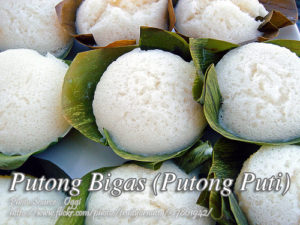Lactobacillus Plantarum Products
There are different products of Lactobacillus Plantarum that are taken internally. The liquid type consists of molasses, soya milk as food for the bacteria so it will stay alive for many months. There are some that adds cow’s milk which is not suitable to those sensitive to dairy products. The mixture ferments and becomes sour and produces lactic acid. This type is cheaper. The other one is freeze dried in suspended animation and formed into tablets or granules. When taken, it will live again to propagate in our digestive systems. This is very convenient because you don’t have to take the fermented mixture but it has some vitamins and minerals which can also be beneficial to us.
There are sites that sells in tablet form. Not only it is convenient, they also contain Lactobacillus acidophilus, found
in yoghurt and other beneficial bacteria.
For IE 5.0 to IE 6.0 Click here to Bookmark (or Press Crtl+D for Netscape)
The Probiotic-Revolution
What we were never taught in school was the startling link between our body’s intestinal flora and it’s ability to prevent serious illness and as vital years to our lives. Proper bowel maintenance can help us to enjoy a dramatically higher quality of life as well.
At the turn of the century, Russian Scientist, Dr. Elias Metchnikoff wrote a ground breaking book, “Prolongation of Life”. In doing so he created the incredible ongoing revolution this work inspired known as the Prebiotic Revolution, Metchnikoff, a Nobel Laureate who discovered phagocytes and other immune system components, documented in the book what he believe to be a direct link between human longevity and the necessity of maintaining a healthy balance of beneficial microorganisms within the body.
Today, some 87 years later, dozens of the world’s most brilliant minds carry on the astonishing work Metchnikoff started. At the alternative medicine research Metchnikoff’s original findings on healing, immune-system enhancement, disease prevention, and life extension.
They are also making remarkable breakthroughs in the understanding of human biology. Breakthroughs that are quietly reshaping the way medical science views the internal biological processes that contribute to human health and longevity.
Why Do we Get Sick Often?
When the ecology of the human gastrointestinal tract becomes disrupted, beneficial microorganisms can no longer flourish in needed numbers and proper balances. What’s more, harmful toxin producing bacteria and fungi begin to take over further changing the ecology of the gastrointestinal tract. We’ve all heard the saying “Death Begins in the Colon.” Then it should come as no surprise that many alternative doctors believe that a disrupted ecology of the gastrointestinal tract may be at the heart of up to ninety percent of all known human illness and disease.
The gastrointestinal tract’s balance of beneficial flora is most commonly disrupted by antibiotic usage, excessive sugar consumption, stress, and drinking chlorinated water.
Is Supplementation The Key?
Due to disturbances in the intestinal tract’s environment, important beneficial microorganisms may no longer be present in desirable quantities in most adults. The result is all too often seen in the fading health and vitality of millions of individuals who could otherwise be enjoying the fruits of their labor and without the burden of chronically poor health.
The solution may be simple as supplementation with adequate and desirable quantities of beneficial Microorganisms such as the Lactobacillus Plantarum. Many doctors feel that inadequate levels of beneficial bacteria may be associated with health robbing conditions.
The situation can be prevented through the supplementation of the diet with food products rich in beneficial bacteria. Foods such as cultured yogurt, buttermilk, cottage cheese, whey and other soured milk food products are good examples. These foods may be enough for general prevention.
Medical Findings
Dr. Elias Metchinikoff, Russian scientist and Nobel laureate, discovered a direct link between human longevity and maintaining a healthy balance of beneficial microorganism within the body. Prolongation of Life Book.
Lactobacillus Plantarum bacteria blend had been submitted to the US Patent and Trademark office as a prototype for antiviral, Antibacterial, antimicrobial and antilumoral characteristics.
Symptoms associated with bacterial imbalance:
|
|
“Lactobacillus Plantarum is the only variety not harmed by antibiotics” says Physicians Guide to the Right Medicines, Leo Galland, M.D. Director of the Foundation for Interactive Medicine in New York City and author of Power Healing, 2000
Bugs for Better Life
A study for publication in the American Journal of Clinical Nutrition shows Lactobacillus Plantarum reduce several of the most common risk factors leading to cardiovascular disease. It also shows that lactobacillus Plantarum lowers blood pressure and LDL cholesterol, in addition, the bacterium reduces the risk of thrombosis.
Improved health without drugs
“This is an outstanding result. It shows that iti is possible to reduce several risk factors in a simple way and within a short time without having to use many different drugs.” comments the investigator responsible for the study. Professor Marek Naruszewics at the Pomeranian Academy of Medicine. Participants also experienced a marked drop in blood pressure and insulin levels, the greatest reduction occuring in persons with the highest blood pressure.
“Bugs make life Better for Children with Aids” New Scientist Vol. 167, No.2246, p.17, Coghlan, Andy
Prelimenary data from an unpublished study by Susanna Cunningham – Rundles of Cornell University’s Well Medical College shows that probiotic bacteria can help children with AIDS. Thirteen children were given a daily dose of a fruit drink containing the bacterium Lactobacillus Plantarum. The patients had been losing weight and had Candida albicans mouth infections which improved with the drinks. Ten of the children’s immune systems improved, and Cunningham-Rundles notes that the bacteria in the drink colonized in the patient’s stomachs, displacing organisms like yeast.




